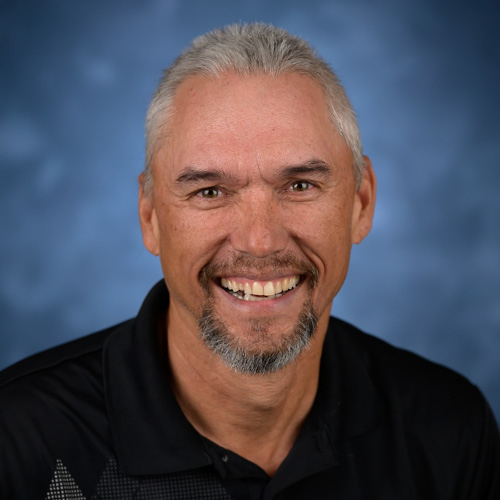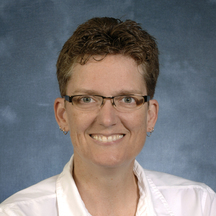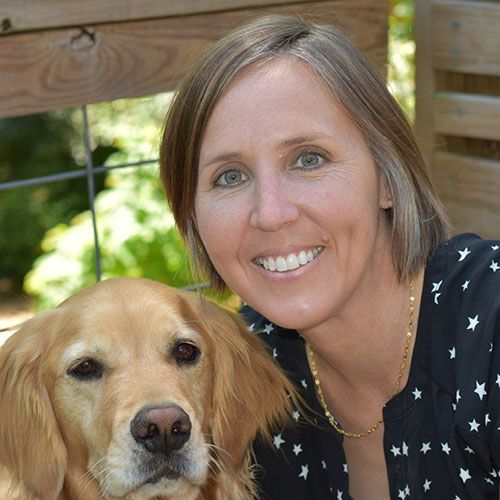Residency: Small Animal Internal Medicine and Clinician Investigator Program
The Internal Medicine Residency Program provides advanced clinical training in small animal internal medicine, which meets or exceeds the training requirements outlined by the ACVIM. The primary objectives of the program are to develop clinical proficiency in small animal internal medicine; gain experience in didactic and clinical teaching; and to complete one or more clinical research projects. The duration of the program is three years. Board certification in the ACVIM is anticipated by the end of the third year.
Program
Overview of Small Animal Internal Medicine Program
The Small Animal Internal Medicine program is highly structured and training is achieved through supervised case responsibility (internal medicine and other specialties) and participation in daily case rounds, intern/resident rounds, and the House Officer Seminar Program. Attendance at other college rounds and seminars is encouraged, time permitting. The internal medicine resident functions as the primary clinician for general internal medicine cases, sub-specialty clinics (pulmonary and renal), daytime emergencies, and referrals. Responsibilities include the supervision and education of professional veterinary students, interns, and other residents; patient care; progressive diagnostic and therapeutic patient management; consultations and communications with clients and referring veterinarians; and the efficient organization, operation and scheduling of the internal medicine service. Residents are expected to contribute to daily student rounds, clinician case discussion rounds, and provide internal medicine backup for the emergency service and after hours intern. While the residents are given full responsibility for their clinical activities, they are expected to seek the daily guidance and opinions of faculty to ensure a comprehensive educational experience.
During the residency a generous amount of time is allotted to independent research activity. This time should be utilized to research, initiate, and complete a clinical project with at least one publication in press by the end of the residency program. Whenever possible, results of the project should be presented in abstract form at the Annual Forum of the ACVIM.
Overview of Clinician Investigator Program
The Internal Medicine Clinician Investigator Program provides clinical training in small animal internal medicine (as described above) and graduate research training toward the PhD degree. The residency portion of the program meets or exceeds the training requirements outlined by the ACVIM for candidates seeking Board Certification in small animal internal medicine. The primary objectives of the program are to develop clinical proficiency in veterinary internal medicine, gain experience in didactic and clinical teaching, and proficiency in basic and applied research. The duration of the program varies according to each student’s ability to satisfy program requirements, but will be no less than five years.
The Clinician Investigator Program is highly structured, rigorous, and embodies a spirit of cooperation amongst clinical and basic science faculty. The program was designed to satisfy the needs of those individuals who are seeking a career in academic veterinary medicine, industry, or government, and many past participants of the CI program at NCSU have highly successful academic careers (see below). Successful completion of the program is dependent upon attracting candidates of the highest caliber who are capable of excelling in this demanding program. Because of the breadth and complexity of the program, the clinician investigator will participate in a diverse group of activities with increasing levels of responsibility. Clinical activity is most intensive in the first year of the program and clinical training is as described above for the Internal Medicine Residency Program. During the second and third years, both clinical and research activities are scheduled. The remaining years of the program are devoted primarily to research activities.
To schedule a visit for the Internal Medicine or Clinician Investigator program, please email a letter of intent, CV and available date(s) to the House Officer Coordinator.
Residency Program Goals
- To become board certified by the American College of Veterinary Internal Medicine, Specialty of Small Animal Internal Medicine. The resident will have their credentials accepted and sit for the general exam (Year 2) and certifying examinations (Year 3).
- To develop clinical expertise in client and referring veterinarian interactions, patient care, problem-oriented case management, and advanced diagnostic and therapeutic techniques.
- To develop teaching skills by leadership and participation in student and house-officer rounds, clinical (on-floor) training of students and interns, and student laboratories, and presentation of lectures to students, peers, and practicing veterinarians.
- To acquire experience in research and scientific writing through the publication requirement of the ACVIM and presentation of a research abstract at the ACVIM Forum (during Year 2 or 3), or other scientific meeting.
Approximate Rotation Schedule – Small Animal Internal Medicine
Year 1
6 months Internal Medicine
1 month Triage service
2.5-3 months/year sub-specialty rotations among:
1 month Oncology
1 month Medical Intensive Care
1 month Neurology
1 month Cardiology
2 weeks Clinical Pathology
2 weeks Radiology
2 months Independent Study Time (includes 2 weeks vacation)
- Register with the ACVIM by October 1
Year 2
7 months Internal Medicine
2.5-3 months/year sub-specialty rotations among:
1 month Oncology
1 month Medical Intensive Care
1 month Neurology
1 month Cardiology
2 weeks Clinical Pathology
2 weeks Radiology
3 months Independent Study Time (includes 2 weeks vacation)
- General exam credentials due October 1
- Develop resident clinical & HO Rounds schedules and insure that they meet everyone’s approval by June 1
Year 3
8 months Internal Medicine
2 months sub-specialty rotations (Cardiology, Medical Intensive Care, Neurology, Oncology)
2 months Independent Study Time (includes 2 weeks vacation)
- Certifying exam credentials due October 1, including one publication
Approximate Rotation Schedule – Clinician Investigator Program
Year 1
6 months Internal Medicine
1 month Triage service
2.5-3 months/year sub-specialty rotations among:
1 month Oncology
1 month Medical Intensive Care
1 month Neurology
1 month Cardiology
2 weeks Clinical Pathology
2 weeks Radiology
2 months Independent Study Time (includes 2 weeks vacation)
- Register with the ACVIM by October 1
Year 2
4 months Internal Medicine
2 months sub-specialty rotations (Cardiology, Medical Intensive Care, Neurology, Oncology)
6 months Independent Study Time (includes 2 weeks vacation): 5 months Graduate Program and 1 month Board Preparation
- General exam credentials due October 1
- Develop resident clinical & HO Rounds schedules and insure that they meet everyone’s approval by June 1
Year 3
3-4 months Internal Medicine
1-2 months IM Chief of Service
1 month External or Optional rotation
6 months Independent Study Time (includes 2 weeks vacation): 5 months Graduate Program and 1 month Board Preparation
- Certifying exam credentials due October 1, including one publication
Program Leadership
Additional Faculty Directly in Support of the Internal Medicine Residency
Apply
The Small Animal Internal Medicine residency participates in the American Association of Veterinary Clinicians’ (AAVC) Veterinary Internship and Residency Matching Program (VIRMP) when a position is available.
The Clinician Investigator Program application is overseen by NC State.
Information for International Applicants
Preference is given to applicants who have graduated from a college that is accredited by the American Veterinary Medical Association. If you wish to apply for an internship or residency program, here are things to keep in mind:
- Have your degree translated and evaluated by a reputable company. If the degree that qualifies the employee for the position is from any institution outside the US, it will need to be evaluated for US equivalency. Options include World Education Services (WES) and the Foundation for International Services (FIS).
- Some programs may require the TOEFL exam to qualify for an internship or residency position.
- Foreign national interns and residents are appointed to H-1B visas.
- To ensure that a foreign national candidate has the H-1B visa at the start of their program the candidate can be asked to pay the premium processing filing fee of $2,805 USD.
- Visa processing generally takes between 4 and 6 months however if the visa is expedited it takes approximately 15 business days.









